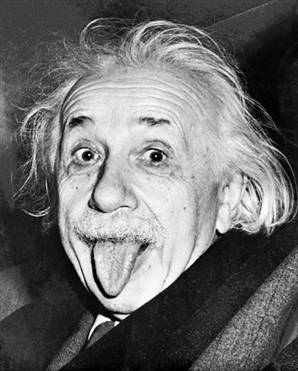httpv://www.youtube.com/watch?v=2Enc8KEzdYY
Daily Archives: January 20, 2010
Frye and Science

In Notebook 27 Frye writes:
I’m giving up the “science” bit in AC: it’s impossible to explain to this generation of critics what I mean. I never did have the analogy of the physical sciences in mind: the model was always social science, man studying himself. What I thought of was a merging of criticism with semiotics and linguistics. When critics keep saying that there can’t be a science of criticism, what they’re really saying is “I can’t and won’t write this kind of criticism,” and I can’t say they’re wrong because I can’t & won’t write it myself. People will write it some day, and I thought it might be a good thing to alert the critics of the 50’s to the ultimate end of what they were actually doing. But if it’s just a prophecy with no present practical use, the hell with it. (CW 5, 85)
As Michael Dolzani says, Frye’s scientific heroes were of the visionary kind––Whitehead, Jeans, Alexander, Bohm. I’ve always wondered whether Frye was familiar with the paradigm theory in Thomas Kuhn’s The Structure of Scientific Revolutions––a theory that would seem to have attracted him. He owned a copy of the book, but I think there’s no evidence that he ever read it, though he seems to have discussed it in an interview with Gilbert Reid. Frye had more than a casual interest in science fiction and in the views of new‑age scientists––what he called “the Tao of physics people” (Ken Wilber, Fritjof Capra, et al.).
Frye was familiar with several popular accounts of science. He read C.P. Snow’s The Two Cultures, James Gleick’s Chaos: Making a New Science, Isaac Asimov’s The Intelligent Man’s Guide to Science and The Neutrino: Ghost Particle of the Atom, and he read as well several of Carl Sagan’s books (Bocca’s Brain, The Cosmic Connection, and The Dragons of Eden).
Frye’s library contains annotated editions of a wide variety of other books on science, including Edwin Burtt’s The Metaphysical Foundations of Modern Physical Science, Stewart Copinger Easton’s Roger Bacon and His Search for a Universal Science, David Hay’s Exploring Inner Space: Scientists and Religious Experience, his colleague John Irving’s Science and Values, Gordon N. Patterson, Message from Infinity: A Space-age Correlation of Science and Religion, and Rudy Rucker’s, Infinity and the Mind: The Science and Philosophy of the Infinite.
Books that Frye owned but did not annotate include Tobias Dantzig, Number: The Language of Science: A Critical Survey Written for the Cultured Non-mathematician, Karl Pearson’s The Grammar of Science, Oliver R. Reiser’s The Integration of Human Knowledge: A Study of the Formal Foundations and the Social Implications of Unified Science and Unified Symbolism for World Understanding in Science, and C.H. Waddington’s The Scientific Attitude.
At school I was taught that substances keeping form & volume were solids, those keeping volume but not form liquids, & those keeping neither gas. Even then I could see that there ought to be a fourth class keeping form but not volume. And there is a tradition, though admittedly a very speculative one, which says that there is a fourth class of this kind, & the one that includes all organisms or living beings. Also, that just as solids, liquids & gases have a symbolic connexion with, respectively, earth, water & air, so organisms, especially warm-blooded animals, are units of imprisoned fire. (CW 13, 208)
Hump Day Music Video
httpv://www.youtube.com/watch?v=-FjSchBoch0
I’m sick and have lost my voice, so I’ll have to let others do my singing for me.
Here’s another vintage REM video, “Shiny Happy People”, featuring the exquisite Kate Pierson of that other band from Athens, Georgia. (I will find a reason to post something by them sometime soon!)